
Michael Starr
Associate Professor, Film & Screen Studies, University of Northampton
Michael Starr is associate professor in Film and Screen Studies at the University of Northampton. He principally writes and researches on science fiction cinema, television and literature, film philosophy, and cult media.
He is the author of Wells Meets Deleuze: The Scientific Romances Reconsidered (McFarland, 2017), and co-editor of Re-entering the Dollhouse: Essays on the Joss Whedon Television Series (McFarland, 2021.)
He has also published extensively on also transmedia, the Marvel Cinematic Universe, time travel narratives, and various Whedonverses texts.
Less ![]()
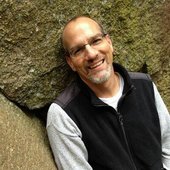
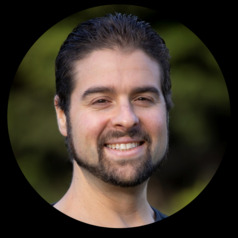
Michael Traurig
PhD Researcher, School of Life and Environmental Sciences, Deakin University
Michael is a quantitative ecologist that specialises in ecosystems and the benefits they contribute to people. His background is primarily in marine ecology but has also worked on alpine risk assessments and migratory bird conservation. Michael is currently completing a PhD linking ecosystem condition to human well-being.
Less ![]()
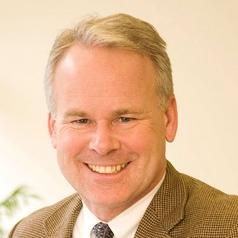
Michael Vandenbergh
Professor of Law and Co-Director, Energy, Environment and Land Use Program, Vanderbilt University
David Daniels Allen Distinguished Chair of Law Vanderbilt University Law School, Director, Climate Change Research Network Co-director, Energy, Environment and Land Use Program Michael Vandenbergh is a leading scholar in environmental and energy law whose research explores the relationship between formal legal regulation and informal social regulation of individual and corporate behavior. His work with Vanderbilt’s Climate Change Research Network involves interdisciplinary teams that focus on the reduction of carbon emissions from the individual and household sector. His corporate work explores private environmental governance and the influence of social norms on firm behavior and the ways in which private contracting can enhance or undermine public governance. Before joining Vanderbilt’s law faculty, Professor Vandenbergh was a partner at a national law firm in Washington, D.C. He served as Chief of Staff of the U.S. Environmental Protection Agency from 1993 to 1995. He began his career as a law clerk for Judge Edward R. Becker of the U.S. Court of Appeals for the Third Circuit in 1987-88. In addition to directing Vanderbilt’s Climate Change Research Network, Professor Vandenbergh serves as co-director of the law school’s Energy, Environment and Land Use Program. He was named a David Daniels Allen Distinguished Professor of Law in fall 2013. A recipient of the Hall-Hartman Teaching Award, he teaches courses in environmental law, energy, and property. Professor Vandenbergh has been a visiting professor at the University of Chicago Law School and at Harvard Law School.
Less ![]()

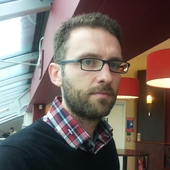

Michael Wadsley
PhD student, Durham University
I am a PhD student in the Department of Psychology at Durham University. My research investigates the reward-based mechanisms underlying the excessive and problematic use of social networking sites.
Less ![]()
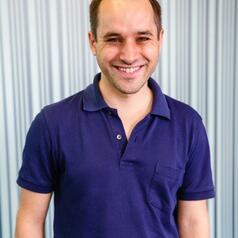
Michael Waller
Senior Lecturer Biostatistics, The University of Queensland
Dr Michael Waller is a biostatistician. His current research focus is using linked data sources to assess dementia rates and risk factors. He has previous experience working on cancer screening, and military health studies.
Less ![]()
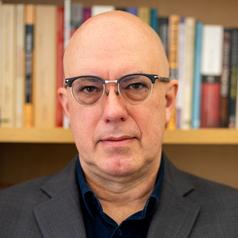
Michael Walls
Professor of Development Politics and Economy & DPU Director, Faculty of the Built Environment, UCL
Michael is Professor of Development Politics and Economy and Director of UCL's Development Planning Unit (DPU). He has twelve years' experience in senior management in the private sector and lectures in 'market-led approaches to development' (a module titled 'Society and Market: Private Agency for Development') and was responsible for teaching development management at DPU ('Development in Practice').
He is actively involved in a number of groups, including the Anglo-Somali Society, Somaliland Focus (UK) and Kayd Somali Arts and Culture Ltd. He has worked in New Zealand and the UK and has also been involved in development work in Somalia/Puntland/Somaliland, Ghana, Ethiopia, Uganda and Kenya.
Research, consultancy and teaching interests lie in the related areas of development management and governance, including: state formation in developing countries; post-conflict reconstruction; state-led development and approaches to regulation of the market to promote equitable development; livelihoods in informal economies – especially African cities; frameworks for understanding and measuring development and wellbeing; and the ethical foundations for development intervention. Michael has established a particular focus on the Somali areas and Ethiopia within the Horn of Africa.
Less ![]()
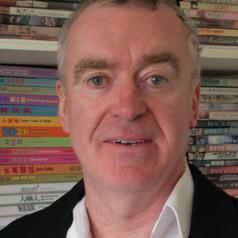
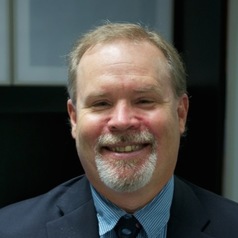
Michael Weigold
Dr. Weigold’s research interests are consumer behavior, health campaigns and warning labels. He has conducted research in advertising and impression management, information seeking, and political communication.
Less ![]()

Michael White
Professor in History of Art, University of York
Michael White is a Professor in History of Art working chiefly on the interwar avant-gardes. He wrote his doctoral thesis on Theo van Doesburg and has a special interest in De Stijl and modernism in the Netherlands. He was consultant curator of the 2010 Tate Modern exhibition ‘Van Doesburg and the International Avant-Garde: Constructing a New World’, advised the Kunstmuseum Den Haag on the display of its permanent Mondrian and De Stijl collections, and was the external curator of the exhibition 'Mondrian and his Studios' at Tate Liverpool in 2014.
Michael is also the author of ‘Generation Dada: The Berlin Avant-Garde and the First World War’ (Yale University Press, 2013) and the co-editor of ‘Virgin Microbe: Essays on Dada’ (Northwestern University Press, 2013). The dual interests he has in abstraction and Dada are informing his latest research projects.
Less ![]()
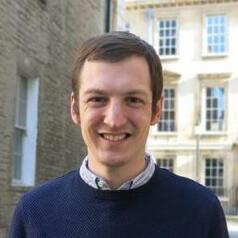
Michael Winding
Group Leader, The Francis Crick Institute
I am a Group Leader at the Francis Crick Institute in London, UK. I generated and analysed the first synaptic wiring diagram, or connectome, of an entire insect brain. Using this brain map and linked experimental tools, my group aims to understand how brain-wide computations generate social behaviours and how these computations go awry after social isolation or in disease.
About me:
I am originally from northern Indiana in the US, where I received Bachelor’s Degrees in Biology and Studio Art at the University of Notre Dame. From there, I received a PhD in Cell Biology working with Vladimir Gelfand studying cytoskeleton rearrangement in neurons and oocytes at Northwestern University, Chicago, IL. I worked as a postdoc studying how innate and learned valences are integrated in the Drosophila larva brain at Janelia Research Campus, HHMI in Ashburn, Virginia. Before my appointment at the Crick, I was a Research Associate at the University of Cambridge, UK, working with Marta Zlatic and Albert Cardona at the MRC Laboratory of Molecular Biology / Department of Zoology.
Less ![]()
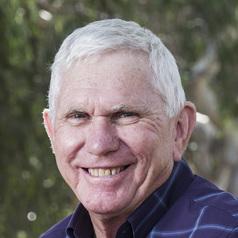
Michael Wright
Chief Investigator - Looking Forward Aboriginal Mental Health Project, Curtin University
Dr Wright is a Yuat Nyoongar man from Western Australia. His mother’s and grandmother’s boodja (country) is just north of Perth in the Victoria Plains region. He has worked across the spectrum of health as a practitioner, policy officer and researcher, and has extensive experience in Aboriginal health and mental health. The Looking Forward Aboriginal Mental Health Project commenced in 2011 and is now an integral part of the Curtin School of Allied Health. The research has been impactful in driving change in culturally safe research practice within and across the School and University. Michael led the development of the Debakarn Koorliny Wangkiny Conditions for Engaging Framework, co-designed with Nyoongar Elders and service providers. The framework has been implemented in mental health and drug and alcohol services in the Perth area and offers a pathway for culturally-safe co-design practice with Aboriginal people.
Less ![]()
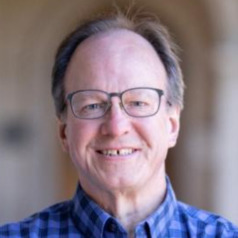
Michael Wysession
Professor of Earth, Environmental, and Planetary Sciences, Arts & Sciences at Washington University in St. Louis
Michael Wysession, Ph.D., is Professor of Earth, Environmental, and Planetary Sciences. He is an expert on the Earth’s inner structure and has mapped various sections of the Earth and is most noted for his map of the Earth’s core-mantle boundary.
Professor Wysession's research in seismology has primarily involved the computer modeling and interpretation of seismic data for Earth structure, addressing questions of Earth composition and dynamics. Areas of focus have been core-mantle boundary region structure and dynamics, core structure, physical causes of mantle and crustal attenuation, causes of intraplate volcanism and seismicity, and the forensic identification of seismic sources such as nuclear tests and military operations. He is the first geologist to map the Earth’s core-mantle boundary, some 2,000 miles below our feet. His research has been supported by 22 NSF grants, as well as funding from the Packard, Kemper, Lilly, and Pew Foundations.
Less ![]()
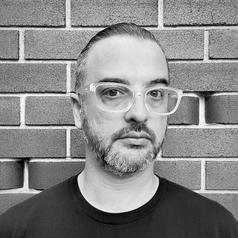
Michael Zanardo
Research Fellow, Department of Architecture, Monash University
Michael Zanardo is currently a Research Fellow in the Department of Architecture, Faculty of Art Design and Architecture at Monash University. Previously he was the inaugural Rothwell Resident in Architecture (2022-2023) in the School of Architecture, Design and Planning at the University of Sydney. His PhD, 'Shaping Affordable Housing' investigated the history and architectural design of pre-World War II State workers' housing in Sydney. Michael is a practicing, registered architect and urban designer specialising in the design of housing, particularly public and affordable housing.
Less ![]()

Michael Allen Fox
Adjunct Professor of Humanities, University of New England
I taught philosophy from 1966-2005 at Queen's University, Kingston, Canada, where I'm also a Professor Emeritus. My special interests are: 19th century European philosophy, existentialism, environmental philosophy, ethics and animals, philosophy of peace, and history of ideas. I've been an Adjunct Professor at the University of New England, Australia, since 2004. I've published 7 books and more then 70 articles on a variety of subjects. My latest book is Fate and Life: Who's Really in Charge? (Montréal: McGill-Queen's University Press, 2024).
Less ![]()
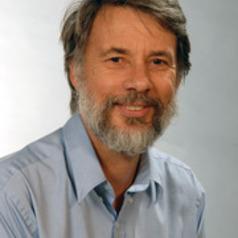
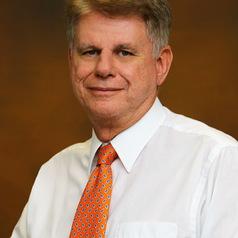
Michael B. Bishku
Professor Emeritus of Middle Eastern and African History, Augusta University
Michael B. Bishku is a professor emeritus of Middle Eastern and African history at Augusta University in the state of Georgia in the United States. He is the former president of both the American Council for the Study of Islamic Societies and the Association of Global South Studies and was a Schusterman fellow in Israel studies at Brandeis University.
In the past, he has taught at Bosphorus University in Istanbul, Turkey, Washington & Lee University, the University of North Florida and the University of Nebraska at Kearney. He is currently an associate editor of the Oxford Bibliographies Online for Islamic Studies and specializes in the interregional relations of middle power countries and minorities in the Middle East, Africa and Asia, with particular interest in Israel and Turkey. He has published in such journals as Middle Eastern Studies, Middle East Policy, the Journal of the Middle East and Africa, Contemporary Review of the Middle East, Mediterranean Quarterly, Nationalism and Ethnic Politics, the Journal of Muslim Minority Affairs, Sociology of Islam, Israel Studies, Israel Affairs, Studies in Zionism, Turkish Review, and the Maghreb Review among others.
Less ![]()
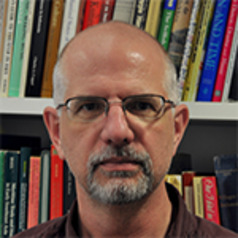
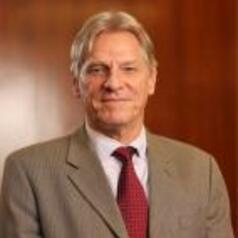
Michael C. Davis
Professor of Law and International Affairs, O.P. Jindal Global University
Prof. Michael C. Davis is the Professor of Law and International Affairs at O. P. Jindal Global University, a Global Fellow at the Woodrow Wilson International Center for Scholars in Washington, DC, and a Senior Research Scholar at both the Weatherhead East Asia Institute at Columbia University and the US Asia Law Institute at NYU. He was the 2018-2019 Residential Fellow at the Wilson Center and the 2016-2017 Reagan-Fascell Democracy Fellow at the US National Endowment for Democracy. He was a Professor of Law at the University of Hong Kong for many years until late 2016.
He has held a number of distinguished visiting appointments, including J. Landis Martin Visiting Professor at Northwestern University (2005-6), the Robert and Marion Short Visiting Professor at Notre Dame University (2004-5) and the Frederick K. Cox Human Rights Professorship at Case Western Reserve University (2000), as well as the Schell Senior Human Rights Fellowship at Yale Law School (1994-5).
His articles have appeared in leading scholarly journals in law and politics. His books include Making Hong Kong China: The Rollback of Human Rights and the Rule of Law (Columbia University Press, author, 2020), International Intervention in the Post-Cold War World (M. E. Sharp, editor, 2004), Human Rights and Chinese Values (Oxford University Press, editor, 1995) Constitutional Confrontation in Hong Kong (St. Martin’s Press, author,1990).
As a public intellectual he has contributed commentary to a variety of international media, including Foreign Affairs, the Washington Post, the New York Times, Nikkei Asian Review and the South China Morning Post, as well as such broadcast media as CNN, the BBC, and NPR. Amnesty International and the Hong Kong FCC awarded him a 2014 Human Rights Press Award for a series of commentary published in the South China Morning. For highlights of his various interest and activities see https://en.wikipedia.org/wiki/Michael_C._Davis
Less ![]()
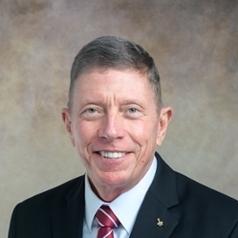
Michael E. Fossum
Vice President, Texas A&M University
Michael E. Fossum '80 currently serves as a Vice President of Texas A&M University, the Chief Operating Officer of the Galveston Campus, and the Superintendent of the Texas A&M Maritime Academy. Fossum joined Texas A&M following his retirement from the National Aeronautics and Space Administration (NASA) – Johnson Space Center in 2017.
Fossum is a veteran of three space flights with more than 194 days in space and more than 48 hours in seven spacewalks during his 19 years as an astronaut. During his last mission in 2011, Fossum served as the Commander of the International Space Station. He has logged over 2,000 hours in 35 different aircraft throughout the course of his career. Fossum earned a Bachelor of Science degree in Mechanical Engineering from Texas A&M University and was commissioned as an officer in the U.S. Air Force in 1980. He is also a graduate of the US Air Force Test Pilot School and has earned Master of Science degrees in Systems Engineering and Physical Science/Space Science.
Fossum was born in Sioux Falls, South Dakota, and grew up in McAllen, Texas. He is married to his Aggie sweetheart, the former Melanie J. London '80. They have four children and seven grandchildren. He enjoys family and outdoor activities. Fossum has been a lifelong supporter and volunteer in the Scouting program.
Less ![]()
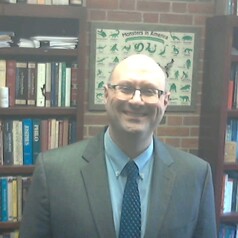
Michael E. Heyes
Associate Professor and Chair of Religion, Lycoming College
Dr. Heyes specialized in the History of Christianity during his Ph.D. studies. He has a wide range of research interests including medieval saints' lives literature, magic, film, politics, and monstrosity; but largely all informed by his engagement with demons and the demonic in Christian history. He has written two monographs, both of which are published with Routledge: Margaret's Monsters: Women, Identity, and the Life of St. Margaret in Medieval England (2019; Studies in Medieval History and Culture) and Demons in the USA: From the Anti-Spiritualists to QAnon (2024; Routledge Studies in Religion).
Less ![]()
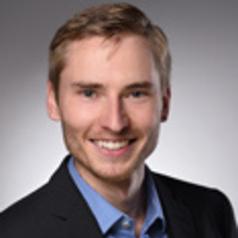
Michael E. Rose
Senior Research Fellow, Max Planck Institute for Innovation and Competition
Michael Rose is a Senior Research Fellow at the Max Planck Institute for Innovation and Competition. He holds a PhD in Economics from the University of Cape Town.
He specialises in the science of science: How can we improve science as a whole? Important aspects he studies include collaboration, migration, career choice and journal policies.
Less ![]()
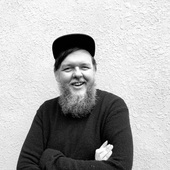

Michael F. Gorman
Professor of Business Analytics and Operations Management, University of Dayton
Michael Gorman is Niehaus Chair in Business Analytics and Operations Management at the University of Dayton.
Less ![]()

Michael F. Harsch
Associate Professor of National Security, National Defense University
Dr. Michael Harsch is an Associate Professor of National Security at the National Defense University.
Dr. Harsch is a political scientist with a focus on international security, international organizations and alliances, conflict, and economic development. He is the author of The Power of Dependence: NATO-UN Cooperation in Crisis Management (Oxford University Press, 2015), which analyzes U.S. strategic leadership and joint decision-making with its allies in major post-Cold War conflicts. He is currently completing his second book, which investigates the enduring success of “islands of stability” in fragile states. His work has appeared in the Journal of Politics, Foreign Affairs, Foreign Policy, and The Washington Post, among others.
Dr. Harsch has a wealth of experience in academic research and teaching, policy-relevant work, and engagement with international organizations. He has been a visiting scholar with Harvard University’s Weatherhead Scholars Program and a Visiting Assistant Professor of International Relations at Boston University (BU). At BU, he taught multiple courses in the fields of international relations and security studies, including the university-wide hub course “Introduction to International Relations” and the graduate seminar “International Security.” Prior to joining BU, he served as an Assistant Professor of Practice at New York University (NYU) in Abu Dhabi, where he lived and taught for five years in an extraordinarily diverse environment, with students from more than 110 countries. At NYU Abu Dhabi, he also helped build a new, interdisciplinary peace and conflict studies program. In addition, he has been a visiting researcher at the NYU Center on International Cooperation in New York, the Social Science Center (WZB) in Berlin, and the World Bank’s Global Center on Conflict, Security, and Development in Nairobi. He further completed fellowships at Johns Hopkins University’s SAIS Center for Transatlantic Relations, the Peace Research Institute Oslo (PRIO), and the German Institute for International and Security Affairs (SWP). He holds a PhD in Political Science from the Freie Universität Berlin in Germany. Additional information can be found on his personal website: https://michaelharsch.org/
Less ![]()
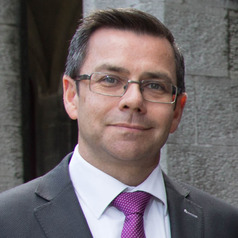
Michael G. Madden
Established Professor of Computer Science, University of Galway
Prof. Michael Madden is the Established Professor and Head of School of Computer Science in University of Galway. He leads the Machine Learning Research Group there, and he lectures on Machine Learning and Deep Learning topics. His research focuses on new theoretical advances in machine learning, including deep learning, motivated by addressing important data-driven applications in medicine, engineering, and the physical sciences. This has led to over 100 publications, 4 patents and a spin-out company. He has also been a Visiting Research Scientist in University of Helsinki, University of California Irvine, and UC Berkeley.
Less ![]()

Michael H. Becker
Doctoral Student, Department of Justice, Law, and Criminology, American University
Michael H. Becker, M.A. is a doctoral student in the Department of Justice, Law, and Criminology at American University in Washington, DC.
His research interests include the individual and group correlates of support for, and participation in violent extremism, process and outcome measures in P/CVE programming, and theoretical testing. His work has been featured in the European Journal of Criminology, Studies in Conflict and Terrorism, Criminology & Criminal Justice, and Terrorism and Political Violence.
Less ![]()
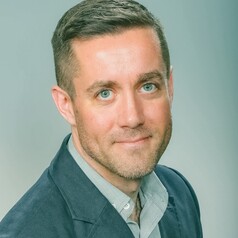
Michael J Smart
Associate Professor and Director, Doctoral Program in Urban Planning and Public Policy, Rutgers University
Dr. Michael Smart is an associate professor at the Edward J. Bloustein School of Planning and Public Policy at Rutgers. His research interests include the influence of social and spatial phenomena on individuals’ transportation decisions, with a particular interest in built-environment effects on alternative modes of travel, such as biking and walking. Dr. Smart’s current research explores the ways in which social networks embedded in particular neighborhoods of affinity—such as immigrant neighborhoods and gay and lesbian neighborhoods—influence the activity patterns of those who live in those neighborhoods. His work has examined the extent to which immigrant neighborhoods across the country function as “cities-within-cities,” and developed novel techniques for describing the inward- or outward-focus of neighborhoods. He received his PhD from the Department of Urban Planning at UCLA in 2011, as well as a Master’s degree in planning from the University of Pennsylvania in 2006 and a Bachelor’s degree in German from Yale in 2000.
Less ![]()
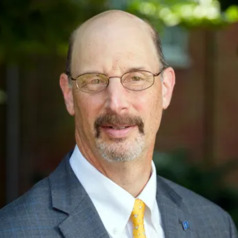
Michael J. Chajes
Professor of Civil and Environmental Engineering, University of Delaware
Michael J Chajes, PhD., P.E., is currently Dean of the Honors College at the University of Delaware (UD) and Professor of Civil and Environmental Engineering.
Chajes joined the UD faculty in 1990, and during his nearly 30 years at the university has served as chair of Civil and Environmental Engineering and dean of the College of Engineering. Dr. Chajes teaches classes and conducts research in the areas of structural engineering, structural health monitoring of bridges, and applications of sustainability.
Less ![]()

Michael J. Davern
Professor of Accounting & Business Information Systems, The University of Melbourne
Professor Michael Davern, FCPA, holds the Chair of Accounting and Business Information Systems at The University of Melbourne. For over 30 years, in Australia and overseas, he has led industry-engaged research examining decision-making Business Analytics, Risk Management and Financial Reporting. Michael’s research is informed by his substantial board-level experience with for-purpose and privately held entities. A neurodiverse boundary spanner with eclectic interests his background includes academic and professional experience in accounting, finance, computer science and decision sciences.
Less ![]()
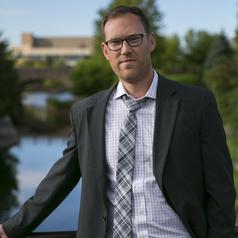
Michael J. Lee
Professor of Communication, College of Charleston
Michael J. Lee is a professor at the College of Charleston where he teaches and researches in political communication. His first book, Creating Conservatism: Postwar Words that Made an American Movement (Michigan State, 2014), won five national book awards. His latest book (co-authored with R. Jarrod Atchison) is We Are Not One People: Secession and Separatism in American Politics Since 1776 (Oxford, 2022).
Less ![]()
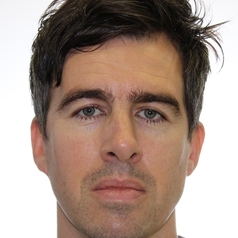
Michael J. McDonald
Associate Professor of Ecology and Evolution, Monash University
I have been a T&R academic at Monash since 2016: President of the Australasian Evolution Society 2021, ARC Future Fellow, Funding from ARC Discovery and Centre of Excellence programs, and NHMRC.
Postdoc Harvard University 2012-2016
PostDoc Academica Sinica, Taiwan 2010-2012
PhD and Auckland and Massey Universities
BsC and MSc at Otago University NZ
Less ![]()

Michael J. Ostwald
Professor of Architectural Analytics, UNSW Sydney
Michael J. Ostwald [DSc, PhD, BArch (Hons 1), BSc; AIA (Architecture), PIA (Urban Design)] is Professor of Architectural Analytics at UNSW, Sydney (Australia). He was previously Professor of Architecture and Dean of Architecture and Built Environment at the University of Newcastle (Australia), EU Professorial Fellow in Architecture and Engineering, Professorial Fellow in Architecture and Design at Victoria University Wellington (NZ) and he has held academic positions in Hong Kong, Europe and North America as well as throughout Australia. His professional training and industry experience are in architecture, urban design and legal assessment.
Less ![]()
- Market Data























